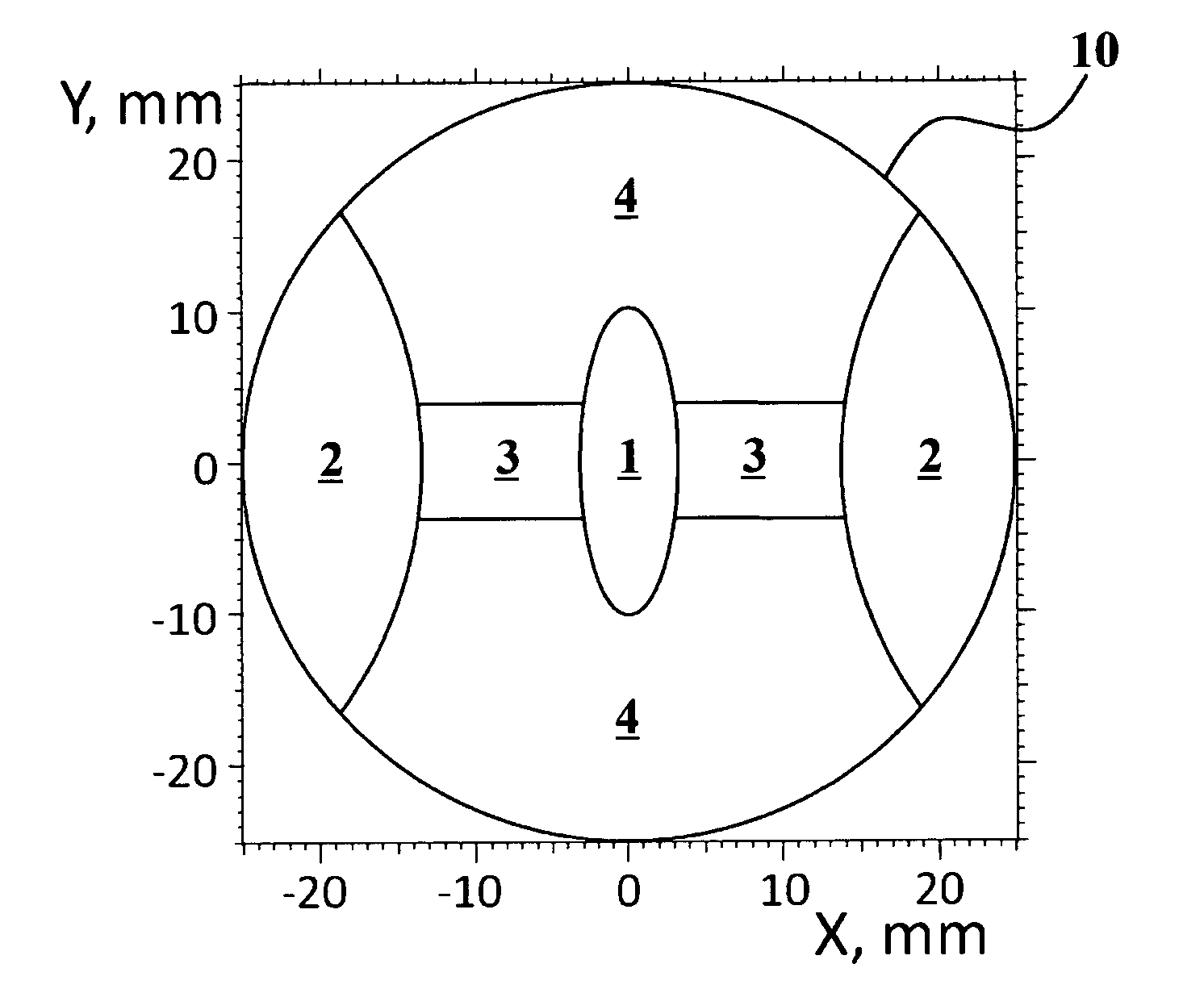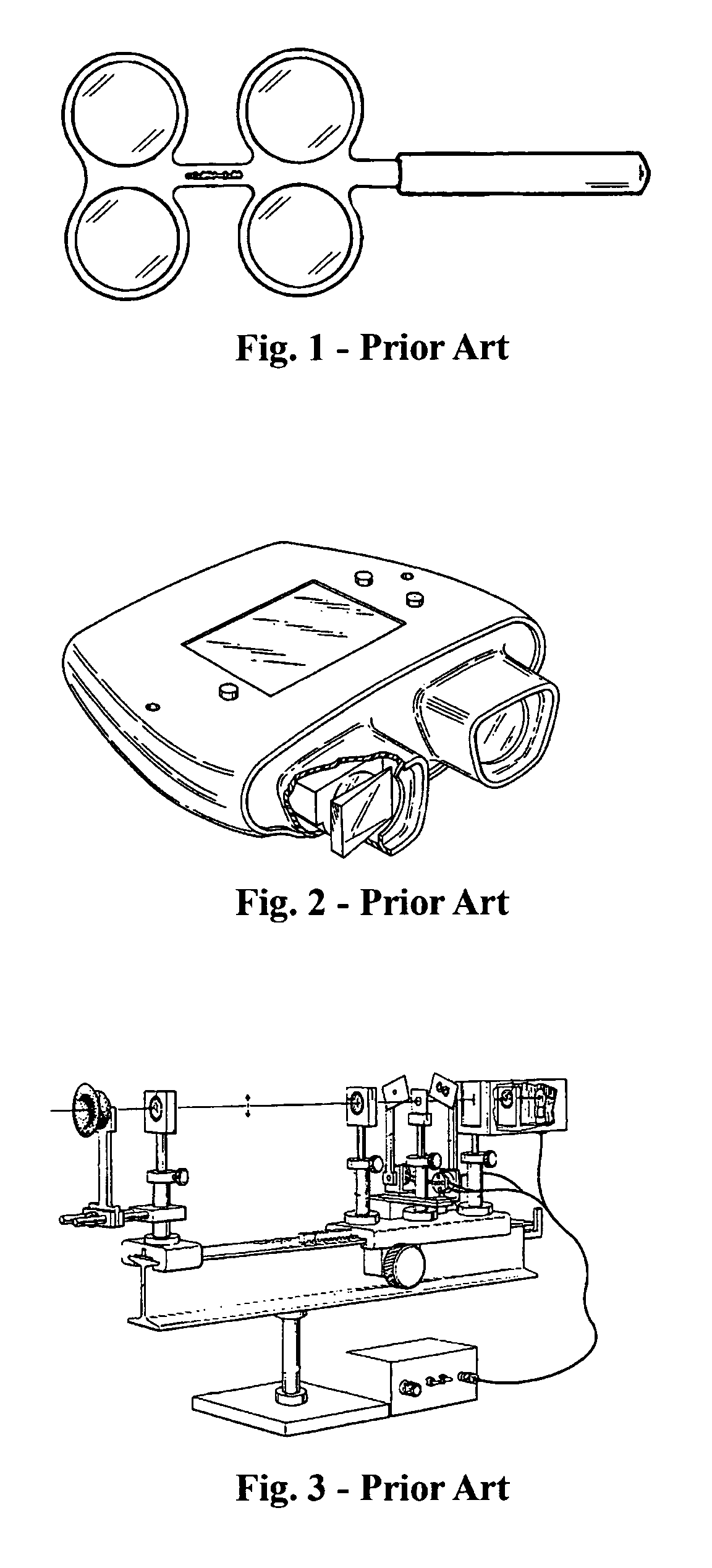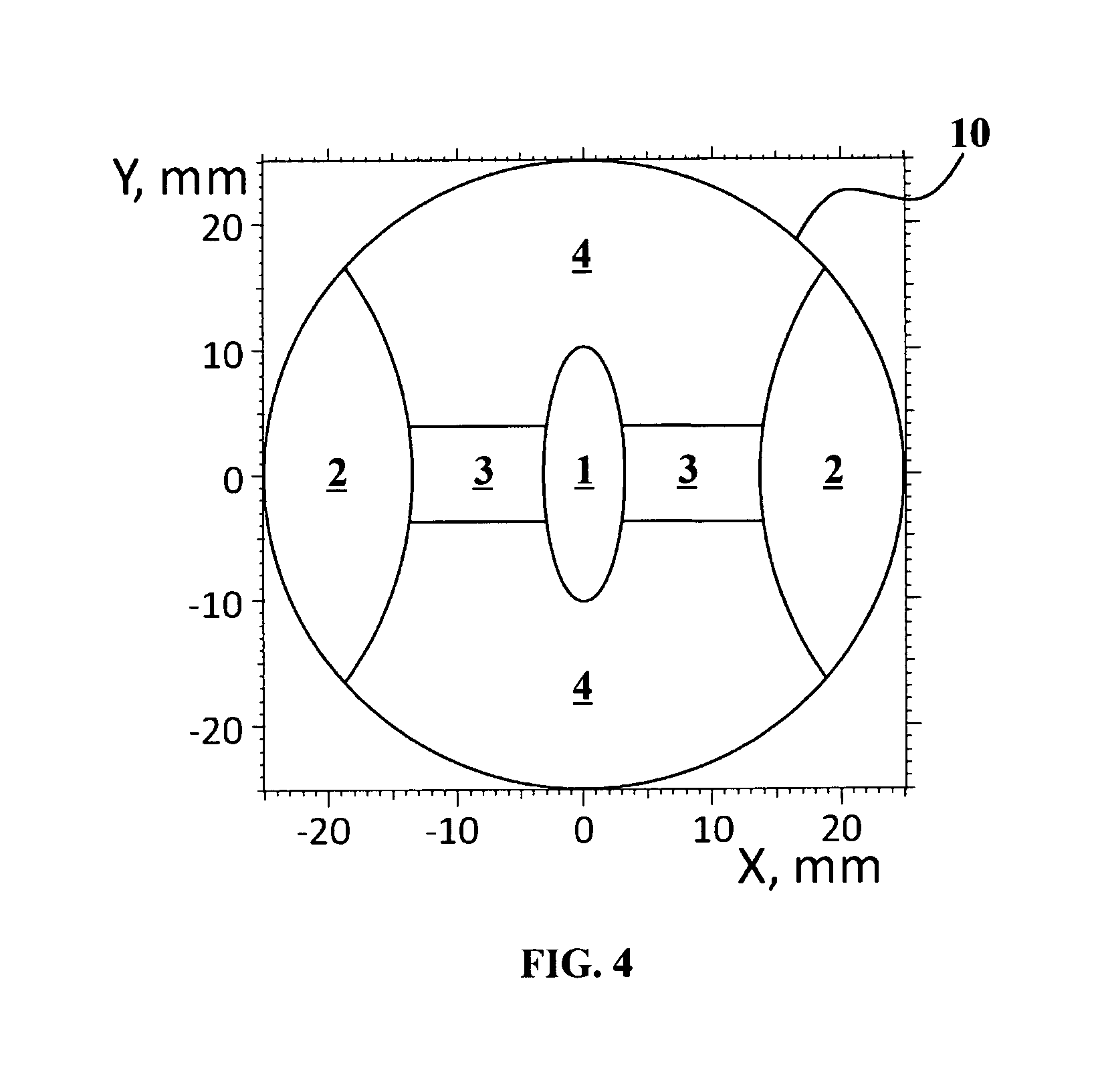Training method for accommodative and vergence systems, and multifocal lenses therefor
a training method and technology of vergence, applied in the field of training methods for improving vision, can solve the problems of cumbersome and expensive equipment, impede the wide application of the mentioned known methods, etc., and achieve the effect of intense training
- Summary
- Abstract
- Description
- Claims
- Application Information
AI Technical Summary
Benefits of technology
Problems solved by technology
Method used
Image
Examples
Embodiment Construction
Terminology
[0084]The following terms used in the present disclosure have the meanings indicated herein below:
[0085]A ‘HOPSA-lens’ is defined as a multifocal lens with Horizontal Optical Power Step-less Alternating (or varying).
[0086]‘Main (or Principal) Meridian’ (MM) is defined as the horizontal meridian of the lens.
[0087]Optical Power (OP) stepless alternating is considered as the progressive, cyclic, or pseudo-cyclic change of a mean sphere substantially along the MM.
[0088]A mean sphere along the vertical meridian (VM) is considered to be stable for each vertical profile of the lens, i.e. having no changes (or having minimal changes—technologically achievable) along the VM for every point of MM.
[0089]The terms ‘horizontal’ or ‘vertical’ are used relative to the position of the lens in a retainer device (e.g. frame) unless otherwise stated in the description.[0090]Basic Optical Power of HOPSA-lens (BOP) is defined as the reference mean sphere of the lens.
[0091]Progression Length (...
PUM
 Login to View More
Login to View More Abstract
Description
Claims
Application Information
 Login to View More
Login to View More - R&D
- Intellectual Property
- Life Sciences
- Materials
- Tech Scout
- Unparalleled Data Quality
- Higher Quality Content
- 60% Fewer Hallucinations
Browse by: Latest US Patents, China's latest patents, Technical Efficacy Thesaurus, Application Domain, Technology Topic, Popular Technical Reports.
© 2025 PatSnap. All rights reserved.Legal|Privacy policy|Modern Slavery Act Transparency Statement|Sitemap|About US| Contact US: help@patsnap.com



